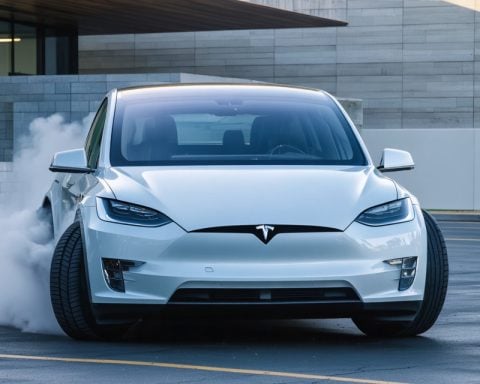The secret to preserving your electric vehicle’s battery life revealed!
The debate surrounding the impact of fast charging on electric vehicle (EV) batteries has left many new owners concerned. The truth is, while frequent use of direct current (DC) fast charging has raised eyebrows, multiple factors ultimately determine its effect on battery health.
As the world shifts towards electric transportation in response to climate change and evolving economic conditions, it’s crucial to understand how to maintain your EV effectively. With many driving enthusiasts eager to make the transition from gasoline to electric, a wealth of guidance is readily available.
Previously, it was believed that using fast charging often could lead to significant battery capacity loss. However, fresh studies are beginning to contradict this notion, particularly for newer models that come equipped with sophisticated battery management systems. These advancements are designed to optimize charging processes and have the potential to mitigate degradation.
In essence, while it’s wise to be informed about charging practices, the fear surrounding fast charging may be largely unfounded, especially for modern EVs. Understanding your vehicle’s technology and following recommended charging practices can dramatically enhance your driving experience without compromising battery life.
As you embrace the future of transportation, stay informed and rest easy knowing that with proper care, your electric vehicle can provide you with years of reliable power.
Unlock the Myths of EV Battery Longevity: What You Need to Know!
The Impact of Fast Charging on Electric Vehicle Battery Life
With the transition to electric vehicles (EVs) gaining momentum, many new owners are questioning how to best maintain battery health, particularly regarding the often-controversial topic of fast charging. While concerns about fast charging’s impact on battery lifespan persist, recent research reveals a more nuanced understanding that can help alleviate these worries.
Understanding Battery Management Systems (BMS)
Modern EVs are often equipped with sophisticated battery management systems (BMS) that intelligently control various aspects of charging and discharging. These systems play a crucial role in optimizing battery performance and extending its lifespan. They monitor temperature, state of charge, and even adjust charging speeds based on environmental conditions. As technology advances, many new models utilize adaptive algorithms that help maintain optimal battery conditions, making them more resilient to potential degradation from fast charging.
Pros and Cons of Fast Charging
Pros:
– Convenience: Fast charging enables EV owners to refill their battery significantly quicker than traditional charging methods, making them ideal for long trips or quick stops.
– Accessibility: The rapid expansion of charging networks has made fast chargers more widely available, enhancing the practicality of owning an EV.
Cons:
– Battery Wear Concerns: While modern EVs can handle fast charging better, excessive use may still lead to some wear over time, particularly in older models without advanced BMS.
– Heat Generation: Fast charging generates more heat, which can potentially impact battery health if not properly managed.
Important Charging Practices
To maximize your EV’s battery lifespan, consider the following tips:
– Use Level 2 Charging Regularly: Whenever possible, rely on standard Level 2 AC charging, as this is less stressful on the battery compared to DC fast charging.
– Limit Fast Charging: Use fast charging primarily for long trips or exceptional circumstances, rather than as a daily practice.
– Monitor Battery Levels: Try to keep your battery level between 20% and 80% most of the time for optimal health.
Market Trends and Future Predictions
The electric vehicle market is witnessing continuous innovations aimed at enhancing battery technology. As manufacturers invest in research and development, we can expect to see:
– Improved Battery Chemistries: New materials and designs that promise better charge retention and faster charging times.
– Widespread Adoption of Solid-State Batteries: Solid-state technology could revolutionize battery performance and safety, allowing for faster charging without compromising longevity.
Conclusion
Understanding the intricacies of your electric vehicle’s charging systems can significantly influence battery life and performance. Staying informed about advancements in battery technology and following best practices will not only enhance your EV experience but also contribute to the broader push for sustainable transportation.
For further insights into electric vehicles and battery technology, visit Energy.gov.

















